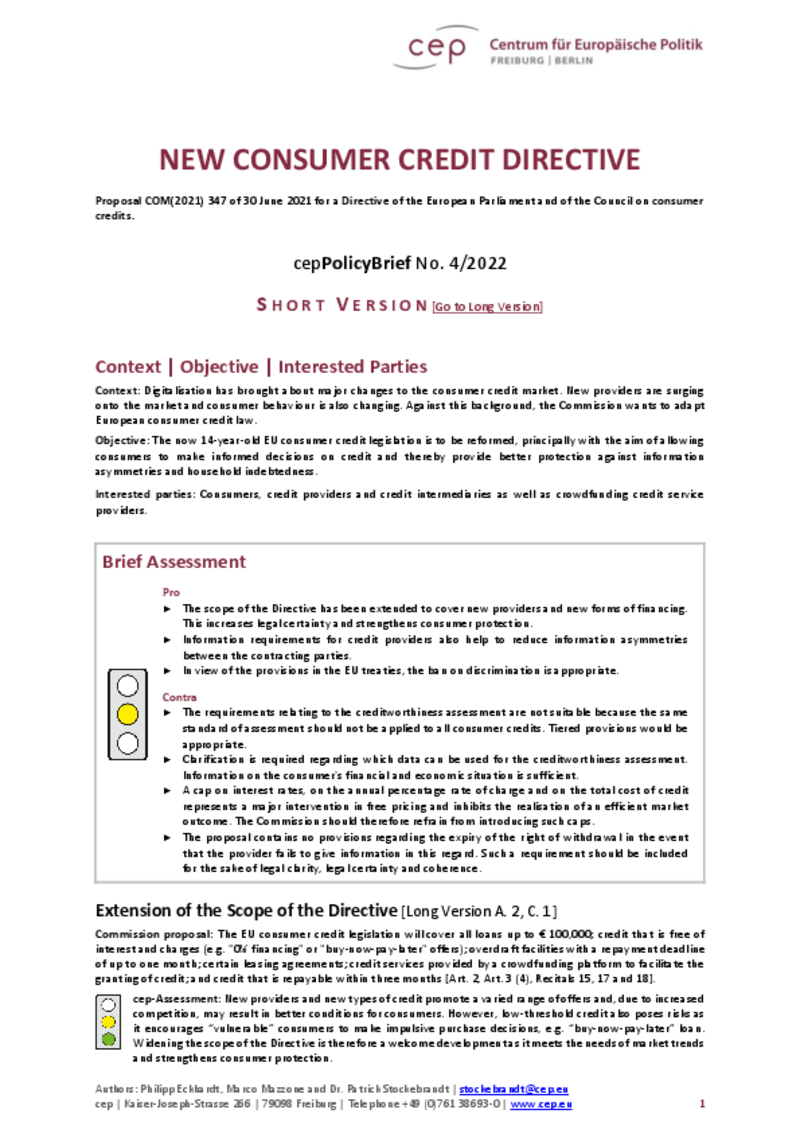
Consumer & Health
New Consumer Credit Directive (cepPolicyBrief)
cepPolicyBrief
"The EU should not introduce an additional information form," demands cep economist Philipp Eckhardt. This would not create any added value but would lead to more unnecessary bureaucracy. Eckhardt examined the Commission's proposal with cep economist Marco Mazzone and cep jurist Patrick Stockebrandt.
According to the cep experts, the exchange of information for assessing creditworthiness is useful in principle for both sides. According to Mazzone, however, the specifications of the creditworthiness assessment are not yet fully developed. "The same assessment standard should not be applied to all consumer loans," the economist emphasises. In addition, it should be specified which data may be used for creditworthiness assessments. "We are convinced that information on the borrower's financial and economic situation must be sufficient," says Mazzone.
The fact that the proposed Directive provides for a cap on interest rates and other costs is considered unnecessary by the cep scientists. "The improved information requirements and the tightened creditworthiness assessment already provide sufficient consumer protection," says Eckhardt.
The goal of providing more legal certainty through the reform of consumer credit law is indeed correct. "But especially regarding the right of withdrawal, clear regulations on limitation are missing. This tends to create legal uncertainty instead of legal clarity," emphasises cep jurist Stockebrandt.




